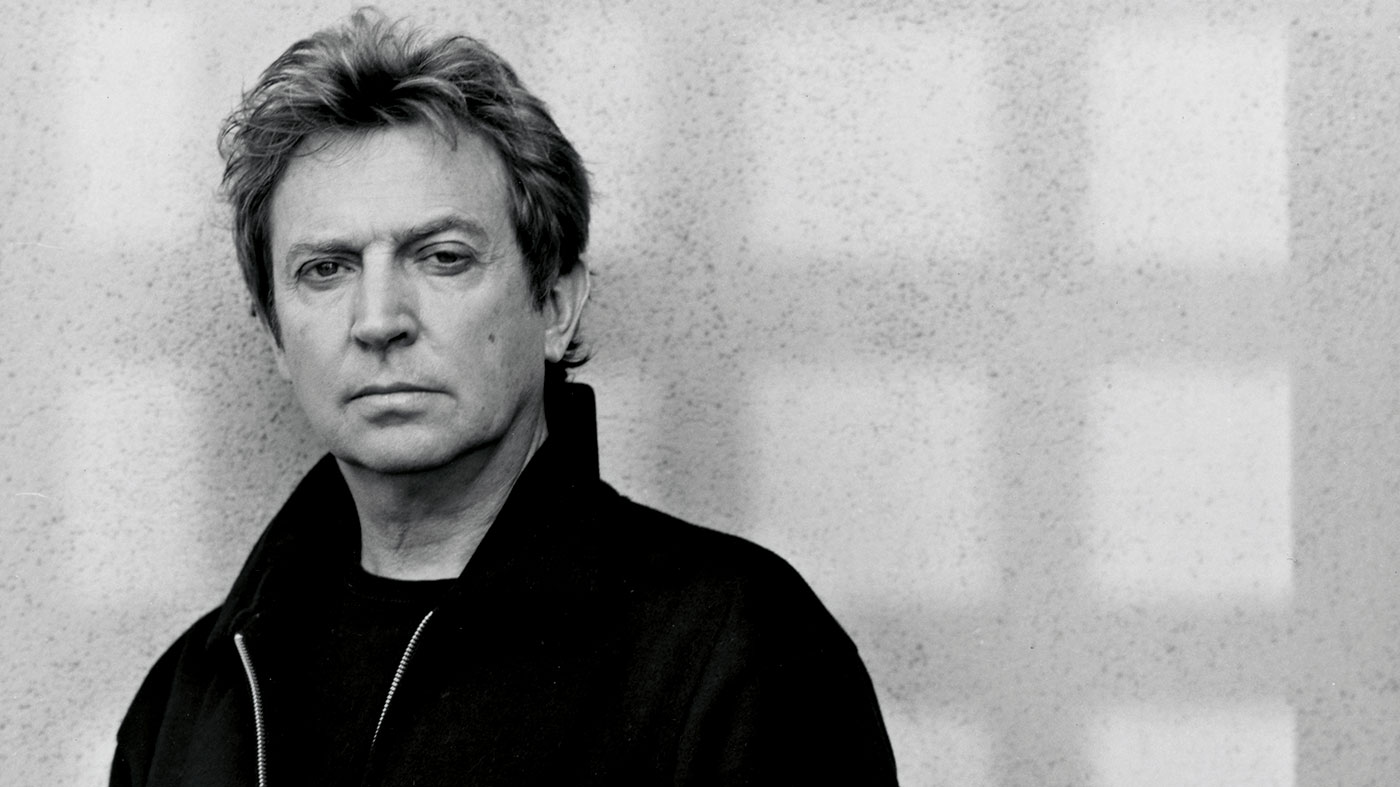Andy Summers' career in gear: "It’s all mythology: sometimes old guitars are great but not always"
The Police guitarist on the guitars, pedals and amps that shaped his hugely influential sound
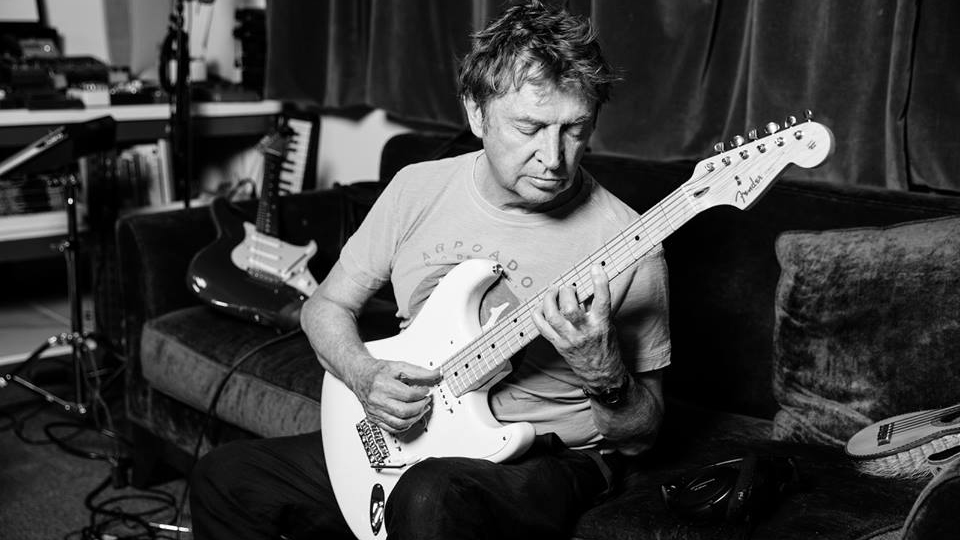
As we get ready to discuss his career in gear, Andy Summers is at his home in LA, preparing for the world tour for new solo album Triboluminescence.
Along with his latest recordings, the multi-Grammy winner will also be performing material from his extensive career against the photography work documented in this year’s book The Bones Of Chuang Tzu - and tells MusicRadar this is something he wishes he got round to earlier on in life…
“After all these years of doing it, coming up close to 50 exhibitions and numerous books, I realised I could project my photography to my music like a movie,” reveals the guitarist, who shot to fame in 1978 with The Police’s ground-breaking debut Outlandos d'Amour.
“It’s an old idea that goes back to the 1920s, going to the cinema and there being an organist playing to all the silent pictures. It’s an old idea brought into modern times.
“Of course, we do it now with a laptop, modern cameras, amazing guitar sounds and the rest of it. It’s not like a guitar through a crappy amp; it’s very beautiful-sounding and the photography is exotic.
“On top of that, I’ll read some stories I’ve written that go with this and take questions from the audience. There was some talk of bringing it to London, though I want to get my feet wet first. It’s the first time I’ve gone out completely solo like this. Let’s see how it goes!”
Creative thinking
Last year’s Triboluminescence saw Summers continue refining his creative methods and moving away from the more traditional jazz he’s been making since the heyday of The Police. It all started with his previous solo effort, 2015’s Metal Dog, which was a collection of music originally made for a dance project in New York – an experiment that could still come into fruition, the guitarist reveals.
“These all started from a sonic place that was intentional. I wanted to bend to the more experimental and cutting-edge approach, so for Metal Dog I began thinking on different lines, like imagining dancers on stage, and then making music to fit that situation.
“It just so happened I was influenced by exotic sounds, like Balinese and South East Asian music rather than straight-up jazz or instrumental rock… like replacing the piano in a jazz quartet with harmonic loops to create an otherworldly atmosphere.
“I got so far into it, creating from this different sonic palette and hooking up pedals to see what I could create, rather than going in with a written composition. It’s pure creativity, from the start. There’s nothing but a blank slate and what’s in my head. A strange, fresh sound would be the starting point and we’d develop it from there…”
There will never be a replacement for talent or musicality. Pedals will give you sounds but they won’t make the music for you
And that’s exactly where the importance of being able to develop comes into play, believes Summers, stressing it’s the intellectual decision-making that truly makes the musician. Those that rely on pedals or any equipment beyond the basics often struggle with the art of songcrafting.
“Just like anything else, you need to have compositional ability to turn these sounds into anything worthwhile,” reasons Summers.
“Those that don’t understand the creative process think it’s just a straight run; you just knock it out according to a formula. Well, that’s not it at all. It’s actually fucked up and completely uncertain. You just stumble forward and eventually see the light in the dark once you’re able to grasp what is coming at you.
“That’s where the brain comes in: you make choices and slowly you start building something. It’s a combination of physicality - as in your actual playing ability - and then your intellectual capacity, where you need to be discerning about what you put in and what you reject. There will never be a replacement for talent or musicality. Pedals will give you sounds but they won’t make the music for you. There’s just no substitute for that…”
Here, the legendary guitarist talks us through his career in gear…
Andy Summers performs at the Regent Theater, Los Angeles on 14 April and the Palace of Fine Arts, San Francisco on 19 April. Tickets are available now.
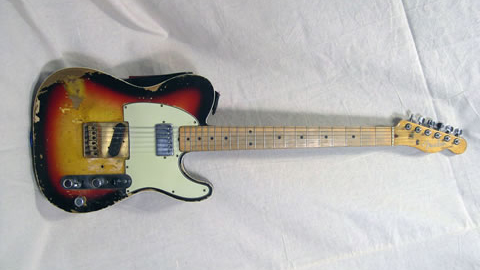
1963 Fender Telecaster
“I wrote about this guitar a lot in my book. It was a hybrid instrument I got while I was in college - somebody had already done all these different things to it - like adding a Gibson humbucker in the front, adding an overdrive switch, an out-of-phase switch… a lot of extra stuff. But the guitar itself played beautifully and it had that incredible phase sound, which I used a lot.
“It wasn’t just any Telecaster, it was an exceptional one. Just one of those guitars that had the magic, with the incredible electric tone. Fender made it as a signature guitar for me in 2007.
“It was the one guitar I used for everything… I did start using a Strat later on, but this was the Telecaster that got used all the time, on all the records. It had everything I needed in one.”
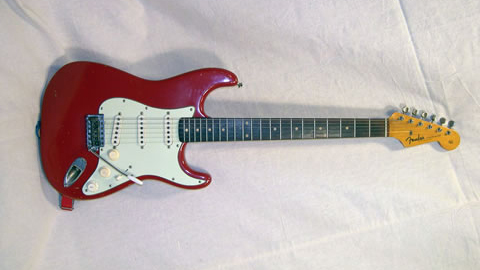
1961 Fender Strat
“Back through the mists of time, I remember getting this in a guitar shop in Austin, Texas for about $400, if my memory serves correct. It would probably be worth about $40,000 now!
“It was a great guitar; I started using it a lot in The Police during Synchronicity period - there are a lot of pictures of me with it. When Fender made that signature Tele, they also casually copied this Strat and gave me a couple more of those!
“And what they produced was wonderful… just fantastic. One of them is the one that sits there on the couch all the time; it’s my working guitar. I have a 1954 Strat as well, which always had this amazing bluesy sound. I took it to the Custom Shop about a month ago because whoever owned it before had scraped off all the finish, so it was just a boring-looking brown guitar - and they redid it for me. Now it’s this beautiful sunburst and slightly relic’d…. a brand-new but perfectly aged instrument.”

1958 Gibson ES-335
“I always liked 335s, right from the start, because I was really into Grant Green at the time, this great American jazz guitarist from New York. He played a slimline 335, which was a bit like Gibson’s answer to the Strat. It was a breakthrough archetypal design in my eyes.
“I still have this guitar in my collection… but there’s actually a smaller-bodied 336 which I play more. It suits me better because I’m not that big and 335s are quite large for guitars.”
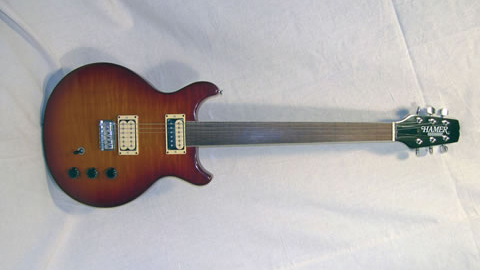
Hamer Fretless
“They made me a load of guitars and were always trying to get me to use Hamer exclusively.
“They were very nice guys – whenever I played in Chicago, there they’d be with all these guitars to give me. But the trouble was they just couldn’t beat that Telecaster, because that guitar was so good. I tried playing it a few times but in truth I never felt comfortable… I always had to go back to the Tele. That was the supreme guitar in my eyes.”
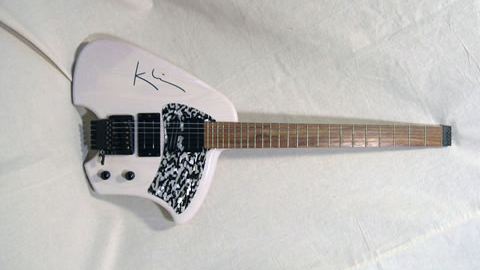
Klein Custom
“I had a go with this for a few years. Yeah, I liked it and looking back it was great, very hip. But eventually I lost the plot with the aesthetics of it!
“A guitar with its head cut off felt like a circumcision of the instrument so I stopped using it, despite it being a brilliant piece of work from Steve Klein, who I was fairly involved with for a while.
“I’ve still got it, but it was a bit characterless in terms of its electronic sound but still a good instrument.”
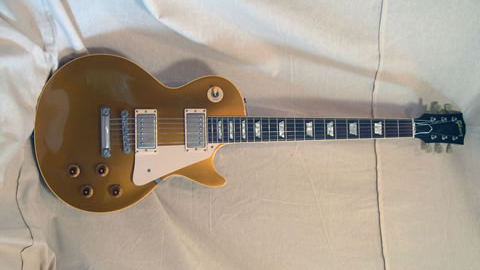
1957 Gibson Les Paul Goldtop
“I sold the original for a great deal of money because Gibson gave me another Goldtop that was even better than the 57! It’s all mythology: sometimes old guitars are great but not always. When I realised the new Custom Shop Goldtop was the better guitar, I thought, ‘Fuck!’ and switched over.
“There’s another Les Paul I own, a red Custom that I bought just walking past a store in Frankfurt. I walked past about five times and thought I just had to buy it because I’d never seen one like it. I probably used it a lot on Circa Zero - sometimes with a project like that, you need a Les Paul to rip one out! It’s a different sound, but great for rock.”
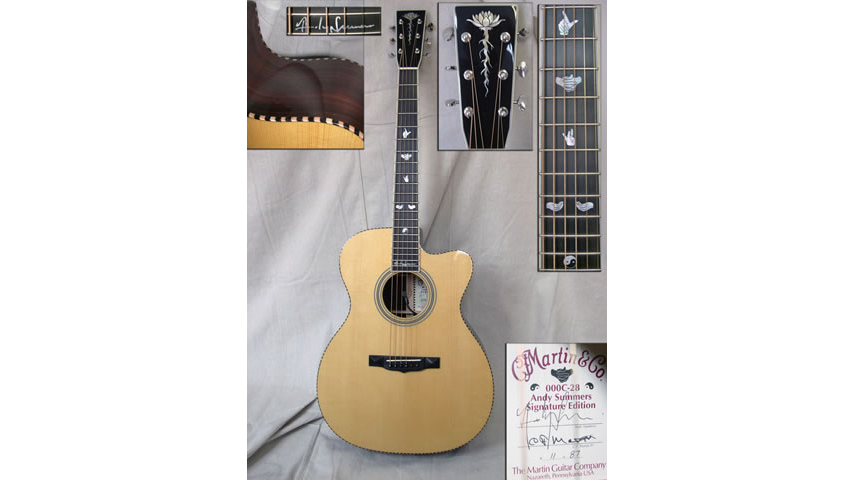
Martin 000C-28 Andy Summers Signature
“I’m lucky and privileged for companies to think it’s worth putting my name on something… it’s lovely being able to do these things. And making my Martin signature was a very pleasant experience.
“I worked with Dick Boak, who had been running Martin for years. I think he finally retired after 50 years there… a wonderful man. It was fun going to the factory in Pennsylvania, seeing everything they had and coming up with this guitar.
Personally speaking, I’m not hugely into steel-string acoustics; I’m much more of a nylon and classical player
“The one thing I did that made life difficult for Dick was wanting these Buddhist mudras down the guitar from the headstock, like the spiritual signs you make with your hand. There is also a lotus blossom on the head and a few down the neck - I don’t know what I was thinking at this time, but it seemed to go very much with acoustic steel-strings!
“I asked for a cutaway to make it more playable, and it came out as a very nice guitar. But, personally speaking, I’m not hugely into steel-string acoustics; I’m much more of a nylon and classical player. Nylon and electric, that’s my thing!”
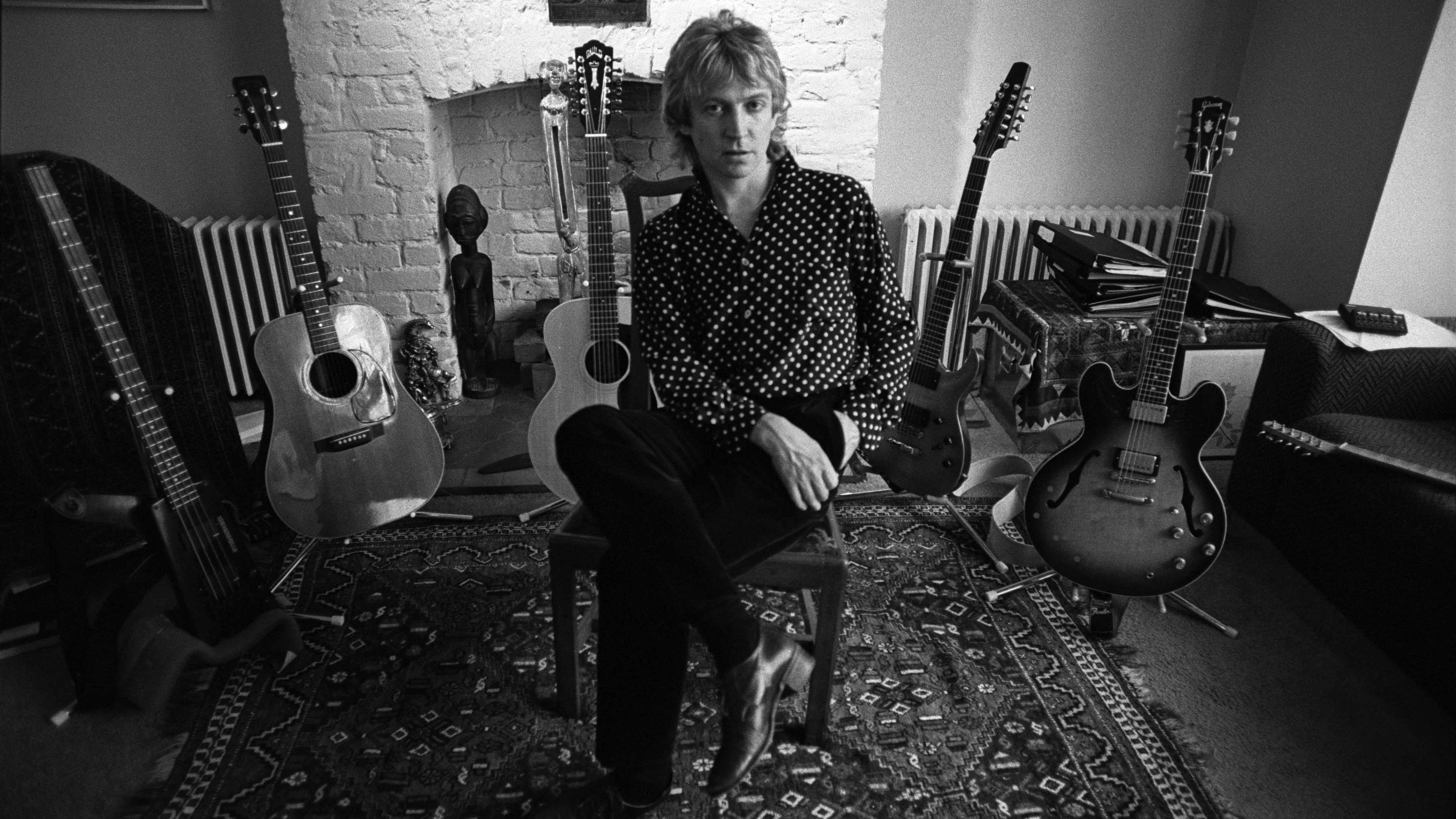
Martin D-28
“I don’t have the acoustic I wrote a lot of songs on any more - I sold it to somebody and deeply regretted it.
At one point I had so many guitars, I just needed to let some go. No idea why that had to include the D-28! Though I actually have another D-28 - it’s not even Custom Shop; it’s what they call an Authentic Series reproduction of a 1945 D-28.
“And it’s a fantastic guitar. I think it needs to be played for another 25 years to really get to where it could go, but it’s amazing already. Authentic is one more than Custom Shop: everything is cut by hand. They use animal glue, not synthetic glue, which makes a huge difference - you’d be surprised how much of a part glue can play. I have one of the few ever made.”
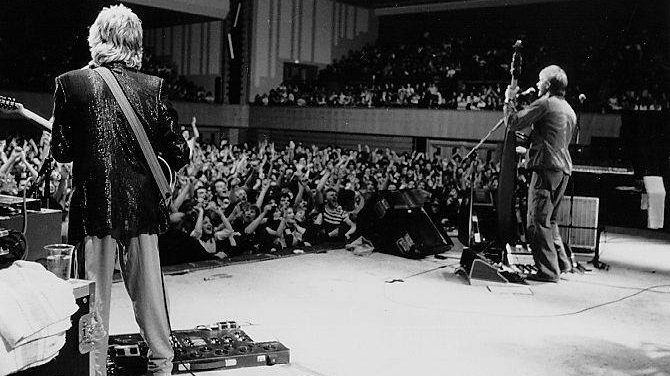
Pedals
“I don’t think about what pedals I used on certain tracks too much.
“I probably used an Electro-Harmonix Electric Mistress at some point. Back in the early days, I didn’t even have a Pete Cornish pedalboard, so it probably was that or an early Boss pedal because I used mostly Roland gear. I used an Echoplex, too.
When I started, pedals were like a novelty, almost like a joke to make funny sounds
“There might have been some compression on Walking On The Moon... I can’t quite remember. I’ve never been fully convinced on compressor pedals; sometimes they sound good and sometimes they don’t - so I don’t think I would have used one. It was mainly chorus and Echoplex going through a Twin Reverb for that song.
“Nowadays, the main thing I use is an Eventide Harmonizer and a Strymon BigSky - which is proving to be very good. I’m a big fan of the Klon Centaur overdrive pedals, which you can’t get any more. It’s the best pedal ever made and I own three!”
“I think we’re in the golden age of guitar pedals. It was never like this before. When I started, pedals were like a novelty, almost like a joke to make funny sounds. Now pedals are very serious, there are millions of people out there making all kinds of pedals that are completely out-there - by the time the noise is out the other end, it’s completely twisted and doesn’t sound normal at all. That’s what interests me: we don’t need another fuzz box or echo thing… there’s enough out there!”
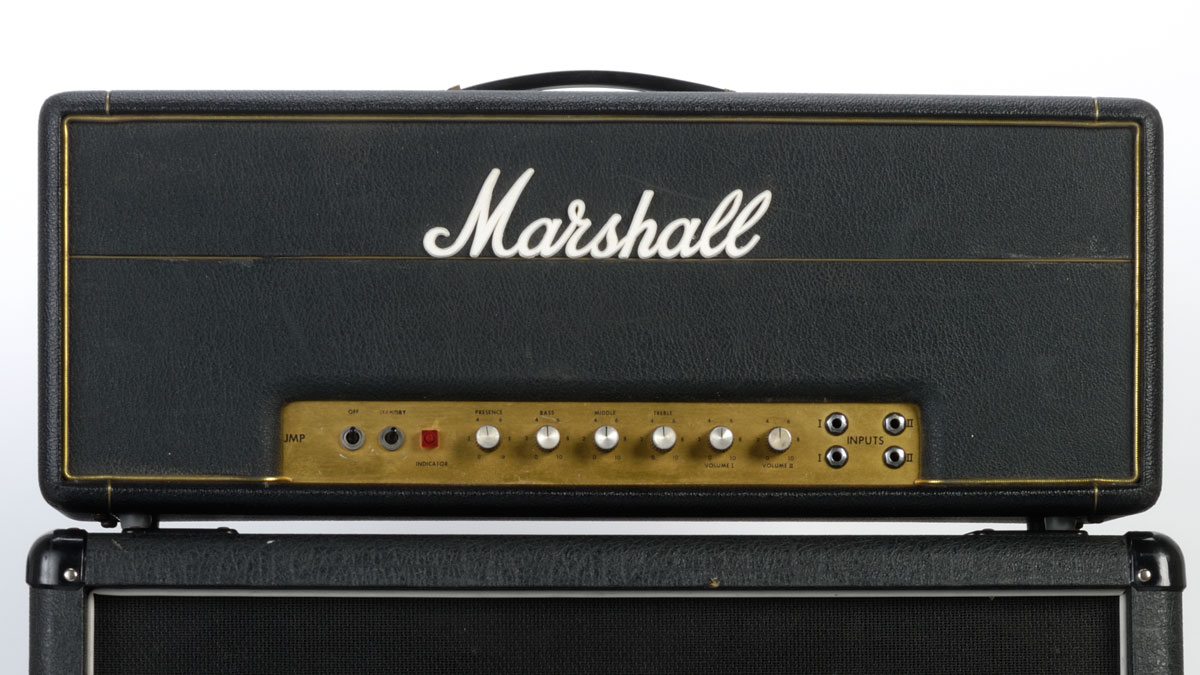
Marshall JMP
“I can’t remember a fucking thing about the amps on The Police records… it makes me laugh. That stuff is for the real nerds.
“I don’t use Marshall any more; I play through two Roland JC-120s nowadays, and it’s been so long it’s hard to remember much about the Marshalls. I think at the time, I just got whatever was good. I still have them but they’re locked up in a warehouse somewhere.
“I used Mesa/Boogie for a while too, but I don’t have those amps any more. The main ones I kept from back then are some old Fenders like the Pro Reverbs. One day I’d like a '58 or '59 Tweed… those are the best ones ever made!”
Amit has been writing for titles like Total Guitar, MusicRadar and Guitar World for over a decade and counts Richie Kotzen, Guthrie Govan and Jeff Beck among his primary influences. He's interviewed everyone from Ozzy Osbourne and Lemmy to Slash and Jimmy Page, and once even traded solos with a member of Slayer on a track released internationally. As a session guitarist, he's played alongside members of Judas Priest and Uriah Heep in London ensemble Metalworks, as well as handling lead guitars for legends like Glen Matlock (Sex Pistols, The Faces) and Stu Hamm (Steve Vai, Joe Satriani, G3).
